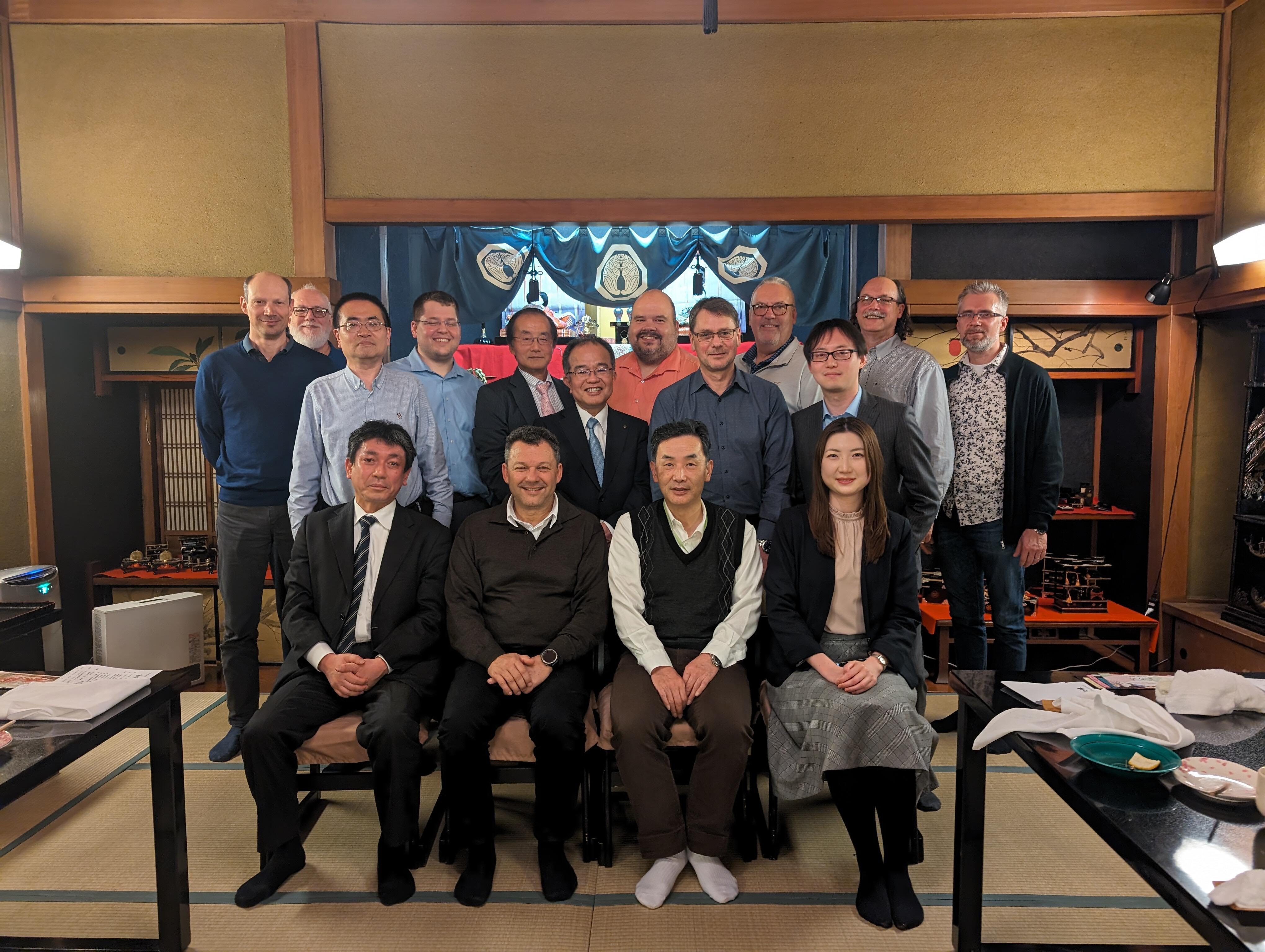A professor from Conestoga's School of Engineering & Technology represented Canada at a technical sub-committee meeting of the International Electrotechnical Commission (IEC) in Japan.

Conestoga professor Jim Galloway (back row, second from left) travelled to Japan where proposed updates to the existing standards regarding the safety of electric welding equipment were reviewed.
Professor Jim Galloway from the Welding Engineering Technology programs attended the meeting held at Saitama University for a week at the end of March.
The gathering’s purpose was to review proposed updates to the existing IEC standards regarding the safety of electric welding equipment. The commission’s standards are used worldwide and adopted in Canada.
Galloway presented the results of applied research conducted in collaboration with Conestoga faculty and students from the Bachelor of Engineering - Power Systems Engineering program and sponsored by the college’s Smart Manufacturing & Advanced Recycling Technologies (SMART) Centre.
In that project, the direct current (DC) output waveform of 45 welding machine models was sampled and compared to the conventional perception of DC, which is generally considered to be a safer type of output when compared to alternating current (AC) welding machines.
The potential electrical shock hazards of non-linear or pseudo-DC are not well understood and are increasingly becoming an industry concern.
“I have volunteered to assist in the development of Canadian and international standards in the welding field for over 20 years with the ultimate goal of providing a healthier and safer work environment for welders and related occupations,” Galloway said.
“It was a privilege to be invited to attend this particular meeting where I was able to articulate Canada's position to my international colleagues.”
The meeting was hosted by the Japanese Welding Engineering Society and the trip was funded through the Standards Council of Canada.
Conestoga’s School of Engineering & Technology offers a comprehensive suite of engineering and technology programs including Architecture, Civil, Construction, Electrical, Power, Energy, Electronics, Cyber, Computer, Environmental, Interior Design, Mechanical, Packaging, Woodworking and Welding.
The school offers a wide range of credentials, from one-year certificates, two-year and three-year advanced diplomas, to graduate certificates and degrees.Conestoga is the only college in Ontario offering fully accredited engineering degrees.
The college works in collaboration with industry, community, and government partners to deliver innovative solutions to address real-world challenges. Conestoga is ranked among Canada’s top-tier research colleges, supporting the needs of industry and community partners while providing students with opportunities to build real-world skills. Visit Conestoga Applied Research and Innovation for more information.
